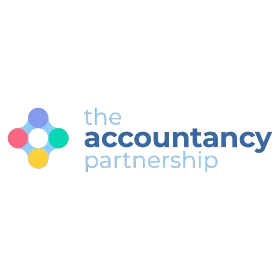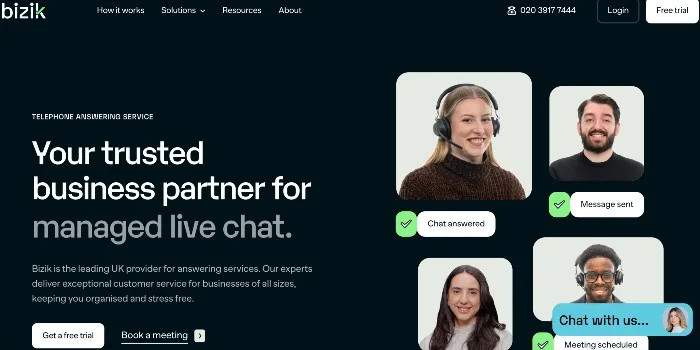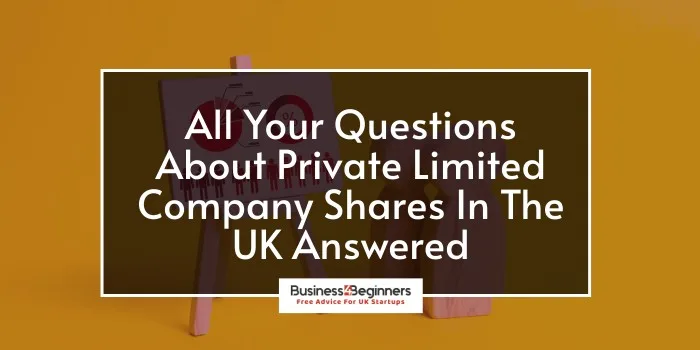Whether you are starting a new company or running an established one, you will probably spend most of your day thinking about how to make it succeed.
With orders come mundane chores such as organizing your invoices, receipts, and taxes. The accounting side of running a business can be quite, well, taxing.
As your business picks up, it is easy to fall behind on your bookkeeping. There are deadlines you may be unaware of. Regulations which have changed. And you rightly worry that accounting mistakes can be pretty costly.
We’d be lost without our accountant and see them as a vital part of our business. Throughout this article, we’ll draw on our experience to provide you with examples of what our accountant has done for us.
Accountants save you time
Accountants exist to handle all of your accounting, bookkeeping, and taxation needs – saving your business time. Using an accountant means less time for you pouring over spreadsheets and trying to make sense of the numbers, and more time actually focused on your business.
They’re trained with expertise and knowledge, helping your business not only keep on top of your finances but also ensure that you’re fully compliant with any HMRC submissions and regulations. Among other things, accounts can help you:
- Prepare your financial records. They can record your sales, assets, stocks, loans, and personal income tax.
- Categorise your invoices and expenses and take care of your bookkeeping.
- Draw up your taxes and make sure they are filed on time. Plus, they can inform you of any deadlines for paying them.
- Do your financial reporting, taxation, auditing, PAYE payroll (if you have employees), corporate finance, and VAT registration and payment.
- Deal with all relevant government paperwork and administrative tasks.
The amount of time an accountant can save depends on how much or how little you let them get involved in. For our business, we take care of our own bookkeeping since we use good accounting software.
This saves us some money on our bills, but does require a little more of our time.
Once a year, we ask our account to prepare our accounts. They access our accounting software and generate the required accounts. We then have to sign them off before they are filed with HMRC.
We then take care of making necessary payments to HMRC ourselves. We also handle our own Payroll but we do regularly consult with our accountant throughout the year to ensure we are operating in the most tax-efficient way.
This is where our accountants have really added value to our businesses.
Recommended – Top-Rated Online Accountant:
Helping you start a business

If you’ve not yet started your business, talking to an accountant is a great idea to give you advice and direction on the best way to set up your business so you can get off to a running start.
For example, accountants can help guide you on which company form is best for you, if you should be self-employed or register as a Limited Company and what each entails in terms of taxation and social security.
Accountants will explain the differences between sole traders, partnerships, limited companies and match your needs to the best business arrangement. They will ask the right questions to help you decide the best setup for your business.
What’s more, they’ll also be able to give you advice to help you establish a business plan.
For those unfamiliar with a business plan, this is an essential document to outline exactly who your business is, what you do, who your customers are and importantly – what your goals are and how you plan on reaching them.
Business plans also contain important information on how you plan on financing your businesses and are essential if you plan on raising finance through loans or investors.
Before applying for investment, accounts can help advise you on your plan, where to look for investment and how the funds can be used to give your business the best start possible.
Helping your business grow
Accountants offer much more than day-to-day accounting for your business. You should think of them as your business partner who will advise you on any issue regarding your business’ health and expansion.
They can explain to you the puzzling jargon that can confuse even the most experienced business owner. They will save you time and effort in dealing with everyday issues, offer detailed consultations on a particular problem that your business might be facing and can even offer ideas regarding future expansion and new market opportunities.
We regularly consult with our accountant. Sometimes it may be a specific tax-related question, such as the most tax-efficient way to extract profits from our company.
Sometimes we have had specific questions around a rule or law and how it might affect our business, such as when I wanted to bring my wife into the business and pay her a salary.
Occasionally, it might be a question about cashflow. For instance, I once asked our accountant for his advice on whether we should invest our excess cash into a business savings account, or withdraw it and pay personal tax on it before investing it into a personal savings account.
In some cases, our accountant could answer by email. Sometimes they requested a call or meeting.
Of course, each interaction did cost us money, and it was added to our annual bill. However, the hourly rate we pay for such advice is minimal compared to the advice and recommendations we receive in return.
Offering peace of mind with DIY accounts
Many entrepreneurs and small business owners prefer to do their finances on their own. Accounting software has come a long way since the days of Excel spreadsheets. Specialized bookkeeping software now exists, including online services such as FreeAgent or Quickbooks.
Depending on the budget, many businesses might find it’s cheaper to keep their books themselves using software, rather than spending the money on an accountant to handle the tasks for them.
Although this is a good tactic for some, it’s important to remember that what you save in money you lose out on expertise.
Accountants are expertly trained – and have a keen eye for detail. This is ultimately what they are trained to do, and will be able to offer peace of mind that all your figures are 100% accurate and any paperwork is compliant with all HMRC regulations.
If you want to take a DIY approach to your accounts, we recommend hiring an accountant to give your finances a once-over. The penalties for getting things wrong can be high, so we’ve always at least paid for an accountant to double-check the figures and accounts our software has come up with.
Which Accounting Software Is Right For You?
Answer 5 multiple choice questions to get a personal recommendation:
Avoiding accounting mistakes

Accounting mistakes are both costly and easy to make, due to lack of information or professional training.
For instance, categorising expenses can be complicated: how sure are you that an expense is really an expense rather than depreciation of capital? Mistakes can be made when you input incomes, expenses and other items. A single initial mistake can render the final accounts erroneous.
For most people, bookkeeping is not a gratifying task, and even the best bookkeeping software can’t help make it interesting.
Even for us, bookkeeping is one of our least preferred tasks. It’s not where our core skills are and so it never feels a good use of our time.
Like us, most business owners would rather focus on their company’s operations, their next product, or expanding to new markets rather than dutifully recording expenses and invoices.
As a result, many postpone their bookkeeping responsibilities for as long as they can manage. This can make them miss a deadline or let the whole process snowball into something unmanageable.
Bookkeeping is time-consuming; the opportunity cost for doing your bookkeeping yourself means that you are not focusing your time and energy into expanding your business, catering to your clients’ needs, or developing new products.
Keeping your business compliant
Accounting is an absolute must for businesses. Even the simplest form of self-employment will require you to do some basic bookkeeping, i.e. income and expenses.
If you don’t submit your financial accounts by the end of the financial year you can incur penalties with HMRC.
Working with an accountant is a great way to ensure your business stays compliant with HMRC regulations and submits all paperwork on time. Why risk heavy penalties and HMRC investigations when a solution is easily obtainable for a reasonable fee?
Lost the buzz for your business?
Starting a business is exciting. Succeeding is rewarding. The bit between is hard, repetitive, and full of self-doubt.
The Lonely Middle Club (From Business4Beginners) helps you through it:
Get support and advice from other small business owners
Remove the self-doubt that’s holding your business back
Learn techniques and strategies to grow your business faster
Be inspired with our exclusive ‘swipe’ file and AI-powered tools
No pressure – work at YOUR pace, towards YOUR goals
—
Fine, I need an accountant. Should I hire one?
Now we’ve shown you all the reasons that accountants can help your business succeed, and it’s now time to think about the logistics of using one. Do you need to hire an accountant full time or should you work with an agency?
There are plenty of options for hiring an accountant, depending on your business size, budget, and needs.
1. Hire an accountant as an employee
One option for hiring an accountant is to use the same hiring process as other employees, hiring your accountant as a dedicated employee for your business.
This is a good option for large businesses that require a lot of financial work and bookkeeping, as keeping a dedicated member of your staff on the team will work out to be more cost-effective than hiring a contractor to work for extended periods of time.
However, for most small businesses, there isn’t enough work for full-time (or part-time!) accountants to warrant the hiring process. Plus, you’ll also need to factor in additional costs such as PAYE and HR systems if you don’t already hire employees.
2. Use a freelancer
Many accountants work as contractors or freelancers, allowing you to use their services for the exact hours or projects you need.
For small businesses, this method is cheaper than hiring a full-time employee or working with an agency, especially if you want to handle the majority of your books yourself and just use an accountant to double-check your finances.
3. Use an agency
Accountancy agencies offer packages, giving your business dedicated services or hours within a certain timeframe. Agencies are a good idea for those who want the same tasks each year, as packages can sometimes save money over hiring freelancers for the project.
It’s also a great way to guarantee accounts are ready to work on your accounts when needed and don’t get booked up by other clients when it comes time to send your annual reports.
Agencies tend to be favoured by growing businesses, as accounting packages can be built with consulting hours you can use to ask questions, dive into the market or get ideas on how to expand.
EXCLUSIVE OFFERS – Save On Your Accountancy Costs
Where can I find a professional accountant?

Before you start looking for an accountant, you need to first think about your preferences: do you want your accounting firm to be local so that you can pop in for questions and face-to-face meetings? Or are you okay with an accounting firm which will do everything online and will mainly contact you by email or phone?
Once you are clear on your needs, you can search for an accountant in a number of ways:
- Ask colleagues and other businesses in your sector about their own accounting arrangements. They can give you an initial assessment of their accounting team. Firms in similar size and business will probably have similar accounting requirements, too.
- Post an Ad online or on relevant magazines, asking for specific qualifications and requirements.
- Search your LinkedIn contacts and appraise the proposals that reach you.
- Talk to government and business associations. They usually have a list of accountants you can get in touch with.
Speaking of trusted recommendations, we’ve tested and reviewed the best online accountants in the UK, so you can get a headstart on finding the best match for you.
What do I need to ask my prospective accountant?
Once you have your prospective professionals listed, you need to pick one. The first thing to do is, narrow down your list of prospective accounting firms or professionals to a handful who best match your business needs and your personal style.
You can draw this shortlist by:
- Checking their qualifications. For instance, do they have ICAEW membership — which means they also have indemnity insurance?
- Making sure they match your business needs. If you are a small business or a startup, it is probable that your initial accounting needs will be basic. You don’t need to employ an expensive accounting firm whose clients are multinationals with offices around the globe.
- Looking for relevant expertise. Your prospective accountants should be able to tell you about similar clients. It would be best if you could talk to other clients to get an honest opinion about the accountant in question.
Once you have your shortlist, it’s time to pick the right one for your business. Asking the right questions, no matter how mundane or basic they might seem to you, will help you choose.
Don’t worry – we’ve put the 7 questions you need to ask an accountant and why into this handy guide.
Building a successful business
Building a successful business is not an easy task. Tasks you need to focus on include anything from developing new products to researching new markets.
That is why having people ease your workload makes sense in every way, especially since using a freelance bookkeeper in the UK has never been easier. So, follow the tips above and discover for yourself how an accountant can help your business succeed.
We have certainly found using an accountant has benefitted our business. It has freed up more of our time doing what we do best – creating content like this to help people like you succeed!
Top-Rated Accounting Software:
| Accounting Software | Cheapest Package | Ease Of Use | Our Rating | Review | Official Site |
|---|---|---|---|---|---|
 | £33/mo | Excellent | 9.4 | Read Review | Visit Website |
 | FREE | Outstanding | 9.3 | Read Review | Visit Website |
 | £16/mo | Excellent | 9.3 | Read Review | Visit Website |










